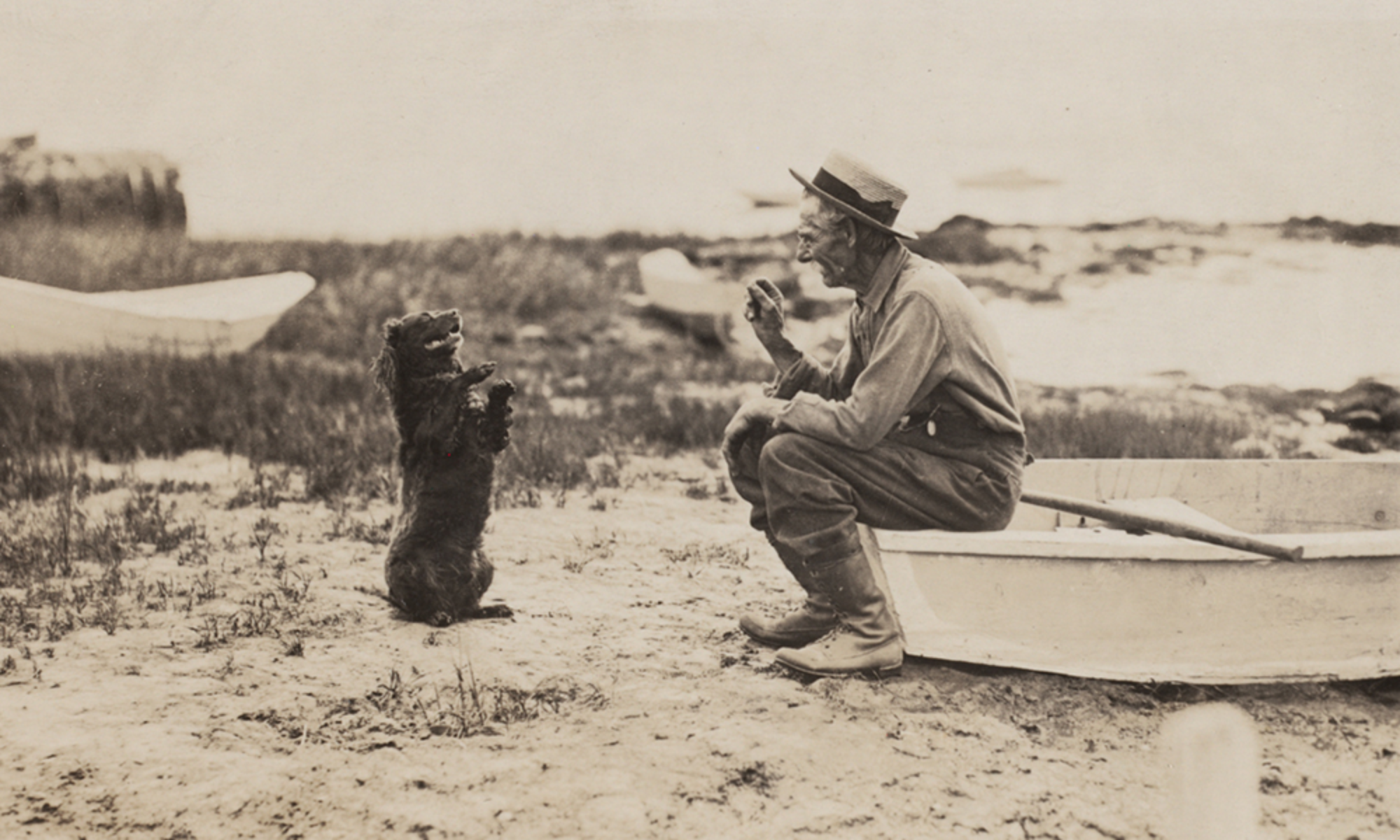On the 1900 Federal Census, as on others before, each head of household was asked to give his (or more rarely, her) occupation. Along Summer Street, these included dry goods merchant, station agent for the railroad, boarding house keeper, stone cutter and teacher, until the census taker came to Horatio Adams, who declared “Capitalist.”
Here is the Capitalist at his desk.

And the tools the capitalist used to manage his labors? The book atop the glass case reads “Neapolitan Ice Cream” probably a business directory of some sort, and inside the case, “A Fragment of Plymouth Rock” with a certificate attesting to its authenticity. There’s a telephone and an electric lamp, a fountain pen and a blotter. There are law books piled and documents filed in pigeon holes. There’s also a picture on Horatio’s desk of someone sitting at a desk which looks at lot like this one.

The second photo seems earlier: there’s no phone or electric lamp, though the desk looks the same.
Horatio Adams, according to his obituary, worked in the Boston Office of the Atlantic and Pacific Railroad, then moved to New York with the company for a year. He returned to Boston to work for Frank Hay, “an expert accountant,” and was employed by the firm of John A. Burnham and Sons for many years.
His connection with the Old Colony Railroad and its various 19th century incarnations began early. He was born on the day the first train passed through Kingston, November 8, 1845 and except for his year in New York, took the train to Boston every day until his death on April 7, 1911. His obituary noted that he was the oldest commuter in and out of Boston.
Horatio is also closely connected to the Kingston Library. His portrait hangs in the Local History Room and photos of him appear in numerous collections. He and his mother Lydia (Mrs. George T.) Adams donated land upon which the Town built KPL’s predecessor, the Frederic C. Adams Library, funded by the will of Horatio’s uncle. Horatio served as a Trustee for Adams Library for some time.
Returning to Horatio’s capitalist ways, stock certificates and investment prospectuses in LHR collections show his interest in all kinds of ventures, including the development of Fort Payne, Alabama and office buildings in the Mid-west. Perhaps the most interesting is the booklet prospectus for the Colossal Elephant. Stay tuned for that.
Sources: Two obituaries, dated April 7 and April 15, 1911, from an unknown newspaper in the Obituary Notebook in the LHR
